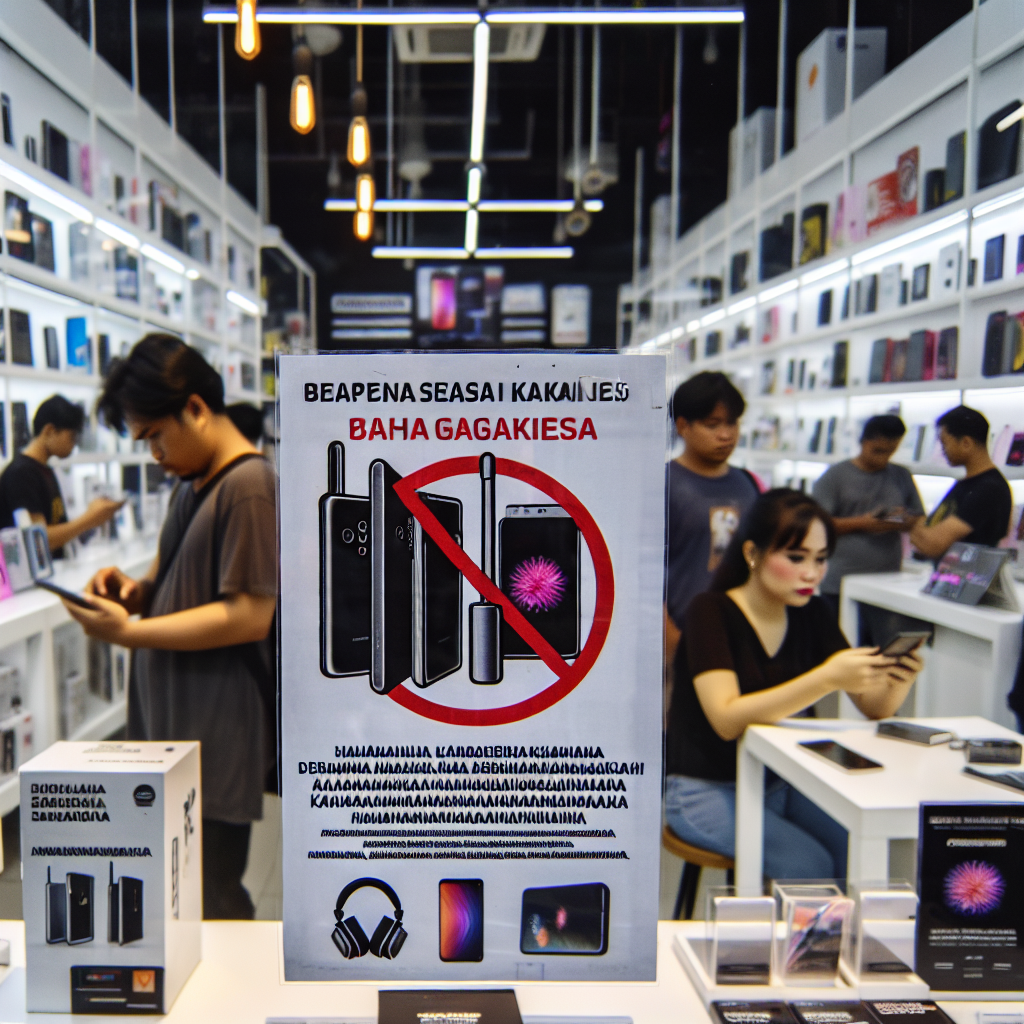Indonesia Halts Google Pixel Sales Following iPhone 16 Ban
“`html
Indonesia Halts Google Pixel Sales Following iPhone 16 Ban
In a surprising turn of events, Indonesia has decided to halt the sales of Google Pixel smartphones shortly after imposing a ban on the iPhone 16. This move has sparked widespread debate and speculation about the underlying reasons and potential implications for the tech industry in Indonesia. This article delves into the details of these decisions, exploring the possible motivations and consequences for consumers and manufacturers alike.
The Background: Indonesia’s Tech Market
Indonesia, with its population of over 270 million, represents a significant market for smartphone manufacturers. The country has seen rapid growth in smartphone adoption, driven by increasing internet penetration and a burgeoning middle class. Major tech companies, including Apple and Google, have been vying for a share of this lucrative market.
However, the Indonesian government has been known to implement strict regulations to protect local industries and ensure consumer safety. These regulations often include requirements for local content, data protection, and compliance with national standards.
The iPhone 16 Ban: A Precursor to the Pixel Halt
The ban on the iPhone 16 was announced earlier this year, citing non-compliance with Indonesia’s local content requirements. The government mandates that a certain percentage of smartphone components be sourced locally, a policy aimed at boosting domestic manufacturing and creating jobs.
Apple’s inability to meet these requirements led to the prohibition of iPhone 16 sales in the country. This decision was met with mixed reactions, with some applauding the government’s commitment to local industry, while others criticized it for limiting consumer choice.
Google Pixel Sales Halt: A Strategic Move?
Following the iPhone 16 ban, the Indonesian government announced a halt on Google Pixel sales. While the official reasons remain unclear, several factors could have influenced this decision:
- Local Content Requirements: Similar to Apple, Google may have struggled to meet Indonesia’s local content regulations, prompting the government to take action.
- Data Privacy Concerns: With increasing global scrutiny on data privacy, Indonesia may have concerns about how Google handles user data, leading to a temporary halt in sales.
- Market Protection: By restricting foreign tech giants, Indonesia could be aiming to protect and promote local smartphone manufacturers.
Implications for Consumers and Manufacturers
The halt on Google Pixel sales, coupled with the iPhone 16 ban, has significant implications for both consumers and manufacturers in Indonesia:
- Limited Consumer Choice: With two major brands out of the market, consumers have fewer options, potentially leading to higher prices and reduced innovation.
- Opportunities for Local Brands: Local smartphone manufacturers may benefit from reduced competition, allowing them to capture a larger market share.
- Pressure on Global Brands: Companies like Apple and Google may need to reassess their strategies and increase local investments to comply with regulations and regain market access.
Conclusion: Navigating a Complex Landscape
Indonesia’s decision to halt Google Pixel sales following the iPhone 16 ban highlights the complexities of operating in a rapidly evolving tech market. While the government’s actions aim to protect local industries and ensure compliance with national standards, they also pose challenges for global tech giants seeking to expand their presence in the country.
As the situation unfolds, it will be crucial for manufacturers to adapt to Indonesia’s regulatory landscape and explore innovative solutions to meet local requirements. For consumers, the hope is that these developments will ultimately lead to a more competitive and diverse market, offering better products and services in the long run.
“`




